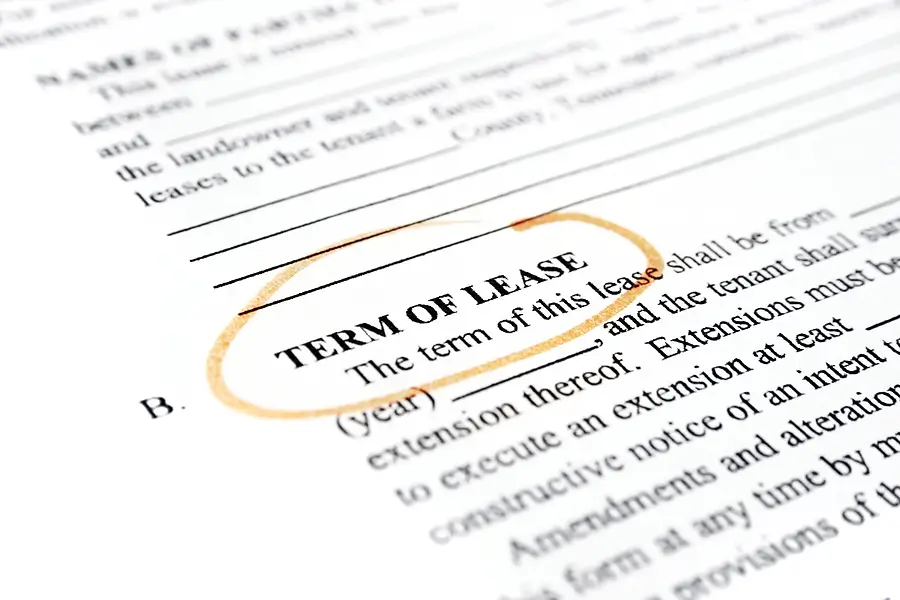Dealing with a tenant who breaks their lease agreement can be a stressful and difficult situation for landlords in Kansas City. As a property owner, understanding your rights, obligations, and best practices for managing such scenarios is essential to protecting your rental property and maintaining a stable rental income.
This guide explores what steps to take when your tenant breaks their lease, the legal considerations involved, and how professional property management companies can simplify the process.
Understanding Lease Agreements and Their Importance
A lease agreement is a legally binding contract that outlines the terms and conditions under which a tenant occupies your leased property. It specifies the lease term, rent amount, rules for use, and obligations for both parties. A violation occurs when the tenant decides to leave the lease early, which can leave landlords unprepared with sudden expenses and potential vacancies.
Common Reasons Tenants Break Their Lease
Tenants may break their rental lease for various reasons, including:
Job Relocation: Moving to another city for work is one of the most common reasons tenants break their lease contract.
Financial Hardship: A tenant may be unable to pay rent due to job loss or unexpected expenses.
Unsatisfactory Living Conditions: Poorly maintained rented property may push tenants to terminate the lease agreement early.
Personal Property and Health: Family emergencies or health-related issues may also cause tenants to end their rental agreement.
Step 1: Review the Lease Agreement
When faced with a lease violation, the first step is to review the written lease. Ensure it includes a clause about early termination, such as requiring tenants to provide reasonable notice or pay for re-leasing costs. The clarity of these clauses will help you address the breach effectively.
Step 2: Communicate with the Tenant
Communication is key when a tenant decides to leave the leased property early. Discuss their reasons and assess whether the situation is negotiable.
If the tenant must leave, confirm their responsibilities under the rental agreement, including covering costs like unpaid rent or damages to the property.
Step 3: Assess the Security Deposit
Kansas law allows landlords to use a tenant’s security deposit to recover financial losses from breaking a lease agreement. You may apply it toward unpaid rent, cleaning, or property damage beyond normal wear and tear.
For example:
Normal Wear: Faded paint or minor carpet wear is expected.
Significant Damage: Holes in walls, broken fixtures, or neglected repairs fall under the category of lease violations.
Itemize deductions and provide the tenant with documentation to avoid disputes.
Step 4: Minimize Financial Loss
As a landlord, it is your legal duty to mitigate financial losses when a tenant leaves the residential property early.
Actively seeking a replacement tenant is necessary, and you can follow these steps:
Market the Property: Use online listings to highlight the property’s features.
Tenant Screening: Assess potential renters to ensure they will honor the terms of the rental lease.
Lease Agreement Templates: Update your leasing documents to include better protections for future situations.
Step 5: Document the Process
Thorough documentation protects you from legal disputes.
Maintain records of:
Communication with the tenant about the lease termination date.
The condition of the rental property before and after the tenant’s occupancy.
Expenses related to repairs, cleaning, and re-leasing efforts.
Step 6: Explore Legal Remedies
In situations where tenants fail to comply with their rental lease, you may need to seek legal action. Consulting an attorney can help you ensure compliance with Kansas laws.
Preventing Lease Violations
While it’s impossible to eliminate all risks, landlords can take preventive steps to reduce the likelihood of tenants breaking their lease agreement. By focusing on clarity, maintenance, and tenant selection, you can develop better landlord-tenant relationships and minimize disruptions.
1. Detailed Lease Agreements
A detailed lease contract is your first line of defense against lease violations. Ensure your rental agreement includes comprehensive terms covering early termination, subleasing, and tenant responsibilities. Clearly outline the consequences of breaking the lease, such as forfeiting a portion of the security deposit or covering costs associated with finding a new tenant.
2. Regular Property Maintenance
Maintaining a high standard for your rented property is essential to tenant satisfaction. Tenants are more likely to honor their lease term if they feel their concerns are addressed promptly and their living conditions meet expectations. Conduct regular inspections, provide timely repairs, and ensure the property is clean and safe. Regular maintenance demonstrates your commitment to the tenant’s comfort, reducing the possibility of dissatisfaction that could lead them to leave the lease early.
3. Tenant Screening
Effective tenant screening can significantly reduce the risk of lease violations. Review applicants thoroughly by checking their rental history, credit scores, and employment status to ensure they have the financial stability to pay rent consistently and fulfill their lease obligations. Confirming the tenant's reliability and long-term commitment to the rental lease is essential for minimizing potential conflicts or early terminations.
4. Clear Communication
Open and transparent communication is important in establishing trust with tenants. At the start of the tenancy, explain the key terms of the lease agreement and emphasize the importance of compliance conditions. Provide tenants with a clear platform for voicing concerns or requesting assistance, whether through a tenant portal, phone, or email. Building this rapport can help prevent misunderstandings that might lead to lease disputes.
5. Incentives for Lease Compliance
Offering small incentives can encourage tenants to stick to their lease terms. For example, you might consider a discount on the final month's rent for tenants who complete their lease without violations. Alternatively, offer perks like discounted services or gift cards to tenants who provide adequate reasonable notice and assist with the transition process when planning to move.
By implementing these strategies, you not only reduce the likelihood of lease violations but also create a more positive and professional experience for both you and your tenants. These measures can help ensure your leased property is well-managed and continues to generate consistent income.
How a Property Management Company Can Help
Handling lease violations is challenging, but with a property management company, you’ll have the support needed to manage these situations.
We offer:
Comprehensive Lease Management: We draft, implement, and update rental agreements to protect landlords’ interests.
Tenant Screening Services: Our complete process ensures reliable tenants occupy your leased property.
Marketing Expertise: We market vacancies efficiently to reduce downtime when tenants leave their lease early.
Legal Compliance: Our team ensures your processes comply with Kansas landlord-tenant laws.
Let Oz Accommodations Handle Your Tenant Lease
Dealing with a tenant breaking their lease agreement is a complicated issue, but it doesn’t have to affect your investments. By understanding your rights, maintaining open communication, and partnering with a professional property management company like Oz Accommodations, you can protect your rental property and minimize financial risks.
If you’re a landlord in Kansas City, contact us today to learn more about how we can help manage your rental lease, handle tenant transitions, and ensure a smooth process for your property. Let us take care of the challenges while you enjoy the benefits of stress-free property ownership.


